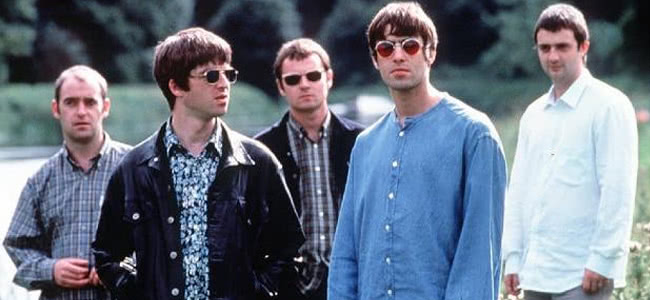20 years after it went to number one in Australia, Adrian Pedic looks back (no pun intended) on Oasis’ crowning achievement,(What’s the Story) Morning Glory?.
(What’s the Story) Morning Glory? opens with a trick; the opening chords of ‘Wonderwall’ are strummed loosely, before the opening track begins proper: ‘Hello’ is a bold, ballsy gesture, complete with an unintentional prophecy that is true of many great albums: “And it’s never gonna be the same”.
Indeed, they never were. In the 20 years since its release, (What’s the Story) Morning Glory? has become arguably one of the most important releases in pop music, as well as pop culture.
It’s been copied relentlessly, with the likes of Arctic Monkeys, Snow Patrol and even Sydney’s own DMA’s taking (What’s the Story) Morning Glory? as both a gospel and a blueprint for their own music.
However, this wasn’t always the case. Upon its release, (What’s the Story) Morning Glory? was unfavourably compared to Oasis’ previous album, Definitely Maybe.
While Definitely Maybe is a great album in its own right, the deviation on their second album to a more pop-focused style was met with the same reaction that we’ve come to expect when bands in the 90s transitioned to commercially successful music: “Fucking sell-outs”.
Critics slated (What’s the Story) Morning Glory? for lacking the rawness and attitude of their previous album, with David Stubbs of Melody Maker (now defunct) calling it “…laboured and lazy. On this evidence, Oasis are a limited band… they sound knackered”.
Love The Beatles?
Get the latest The Beatles news, features, updates and giveaways straight to your inbox Learn more
It’s all too common for landmark releases to be met with critical backlash. It usually occurs because, within the social and cultural context, there isn’t an immediate comparison or anchor point for the album.
While alternative pop music reached some lofty peaks in the 90s (Nevermind, Ten, Bandwagonesque), an alternative band hadn’t yet crafted such a pure statement in pop music like (What’s the Story) Morning Glory?.
Like their spiritual predecessors, The Beatles, Oasis managed to blend intelligence, emotion, and massive appeal onto a rock ‘n’ roll record. It’s fair enough to see why nobody expected it.
All of this is perfectly captured in the most successful of the album’s six (!) singles: ‘Wonderwall’. While not the best song on the album, it is the most emblematic and known. Its uplifting chorus, arrangement, strings, and instrumentation crystallise what makes (What’s the Story) Morning Glory? so appealing.
The song is perpetually rising to a climax, the lyrics sound good but aren’t too committal (see Nevermind, again) and it finds its emotional hook and successfully rallies the song around it.
‘Champagne Supernova’, ‘Don’t Look Back in Anger’ and ‘Some Might Say’ are all similarly brilliant examples of the same methodology. However, even the lesser-known songs on the album were noteworthy.
‘Cast No Shadow’ is a genuinely heartfelt sentiment, featuring more substantial lyrics than the rest of the album: “Bound with all the weight of all the words he tried to say, chained to all the places that he never wished to stay”, and ‘She’s Electric’ is one of the most underrated songs of the decade.
It’s fitting that (What’s the Story) Morning Glory? is one of the highest selling albums in UK history, and was globally successful on a similar scale. It wouldn’t be a mistake to call it one of the most definitive albums in history.
Twenty years on, it still sounds as fresh, as appealing, and as enduring as it did when it was released. There’s just one question: what the hell is a champagne supernova?



































